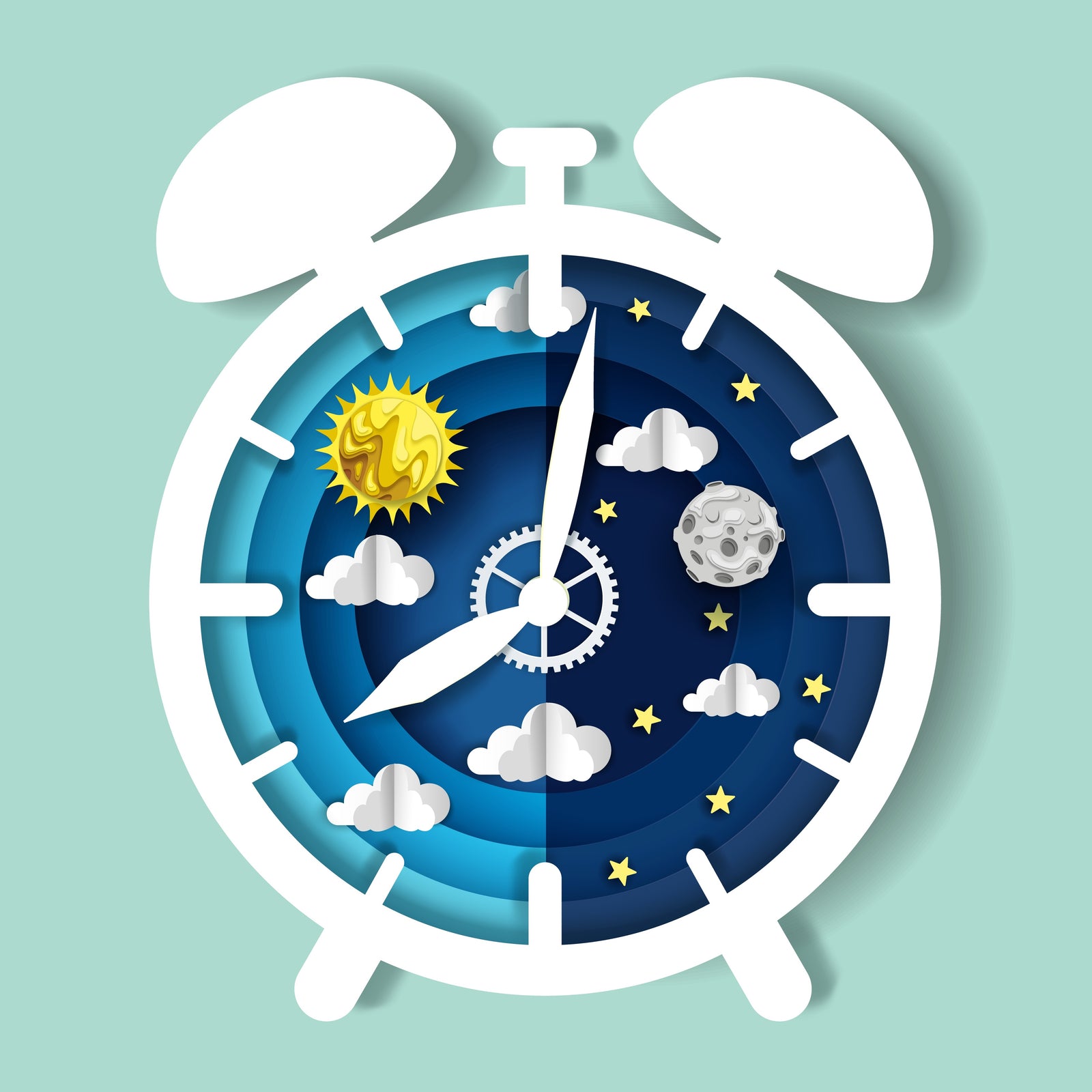
The Circadian Rhythm plays an important role in setting up sleep-wake cycles in the body. When this is aligned, it can promote a good night's sleep. However, when it is not aligned, it may lead to sleep disorders like Insomnia, chronic fatigue and other health problems. Numerous studies have been conducted over the years to investigate the effects of Circadian Rhythm on the body, and newer studies now show it to affect physical and mental health as well in addition to sleep.
What Is The Circadian Rhythm?
The term circadian rhythm is derived from the Latin terms circa and dies. While circa means 'about', dies is translated to 'days'. The circadian rhythm helps the body conduct the biological processes with proper timing. (1) In order for the cells of the body to work properly, they require the right resources to be available at the right place at the right time. There is a precise window of time when the proteins, carbohydrates and fats have to be broken down, absorbed, metabolized or produced in the body. This allows the right amount of energy to be produced and used up for processes of the body like cell repair, growth, metabolism and reproduction.
The Circadian Rhythm allows all of this to be achieved by informing the body about the changes in the external environment, which may include the time of day and the light pattern produced by the earth's rotation. However, it is important to remember that it is not the external triggers like day and night that drive the circadian rhythm in the body. Instead, it is generated on its own in the body and then gets synchronized to the outer environment. (2)
How Are Circadian Rhythms Produced?
Circadian rhythm is produced internally by the body through the help of several natural factors. An example is the two genes that help elevate the circadian activities in the cell nucleus at night while slowing them during the day. These are known as the Period and Cytochrome genes. Studies which have been conducted to investigate this further have shown that these genes also play a role in an individual's wakefulness, alertness and sleepiness. While the circadian rhythm is produced and is operated through internal signals of the body, certain external signals may also play a role. An example of this is that exposure to light during a part of the night can confuse the body's biological clock and may activate the two genes mentioned above.
Circadian Rhythm And Sleep
When we hear the term circadian rhythm, we automatically link it to sleep and how its disruption can affect our sleep-wake cycle. During times of the day during which we experience light exposure, the brain generates signals to become more alert and active. This keeps us awake. However, as night approaches and light exposure is low, the master clock of the body starts to produce a hormone known as Melatonin. This hormone promotes sleep. This way, the circadian rhythm ensures that the individual sleeps during the night and stays alert and awake during the day.
Disadvantages Of Disrupted Circadian Rhythm
The inability to get a full night's sleep or having a shortened sleep due to disruption of the circadian rhythm can have a number of harmful effects on the body. This is particularly common among teenagers and individuals who work in an office when they have to do night shifts. (3)
Excessive Day Time Sleeping
Short sleep is sleeping for less than 7 hours in 24 hours. This may lead to excessive daytime sleeping and a lack of productivity at work. (4) Studies conducted to evaluate the effect of shortened sleep on night-shift workers have shown that most of them get only 5 to 6 hours of sleep every 24 hours. Not only is the total sleep time shortened, but it also affects the quality of their sleep. During the night, even though they may feel alert and are busy at work, their biological system is in a state of sleep. On the contrary, when they are sleeping during the day, their body is in a state of wakefulness. (5)
Mental Health Disorders
Circadian rhythm may not only affect the sleep-wake cycle and the overall physical activity of the body, but it also has the ability to affect our mental health. For example, it can have an impact on our feelings and our thoughts. (6) Experts believe that a disruption of the circadian rhythm can increase our risk for depression. Hence, not sleeping right can affect our impulses and lead to deteriorating mental health.
External Factors Affecting The Circadian Rhythm
Other factors which may affect the Circadian Rhythm include the length of darkness during the night and light during the day. These are seen to change with the changing season, as summers have longer days, but winters have longer nights. The changes in the length of nights and days are due to the unique rotation of the earth. The longer lengths of darkness seen in winter due to the longer nights can promote a negative mood and depression in some individuals. It may also cause them to sleep more and be less alert. (7)
How Can You Reset Your Circadian Rhythm?
Changes in your routine, jet lag or environmental conditions can disrupt the Circadian Rhythm and negatively affect the body. However, there are a number of ways through which you are able to reset your Circadian Rhythm. These include:
- Despite the environmental changes, stick to your everyday routine. An example of this is putting sleep reminders at night and alarms to wake up on time in the morning.
- Spend as much time as your can outside during the day to increase exposure to light and promote alertness.
- Make sure to close the lights while sleeping, and set up an environment that promotes sleep.
- Avoid caffeinated drinks at night, as they may disrupt your sleep and affect your circadian rhythm.
The Bottom Line
Circadian rhythm plays an important role in the body and may be regulated by several factors, including our lifestyle, external events and internal biological molecules. Therefore, in order to prevent disruption in the sleep cycle and the deterioration of physical and mental, one must focus on maintaining Circadian Rhythms.


